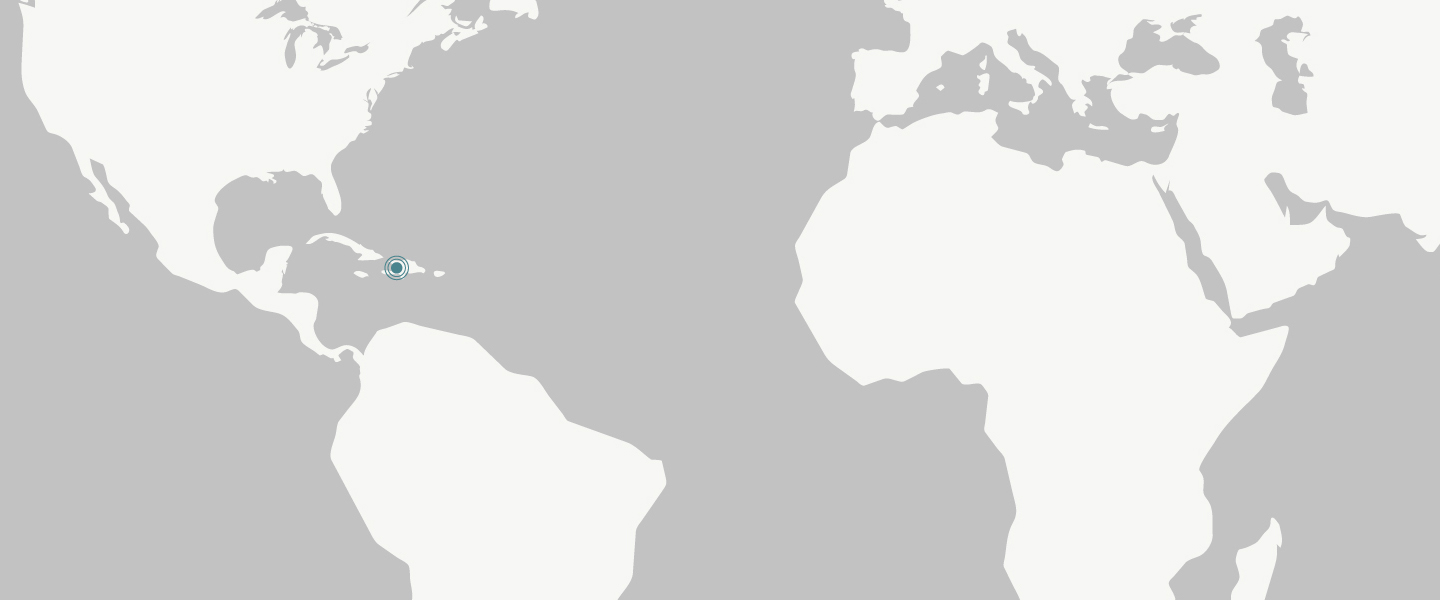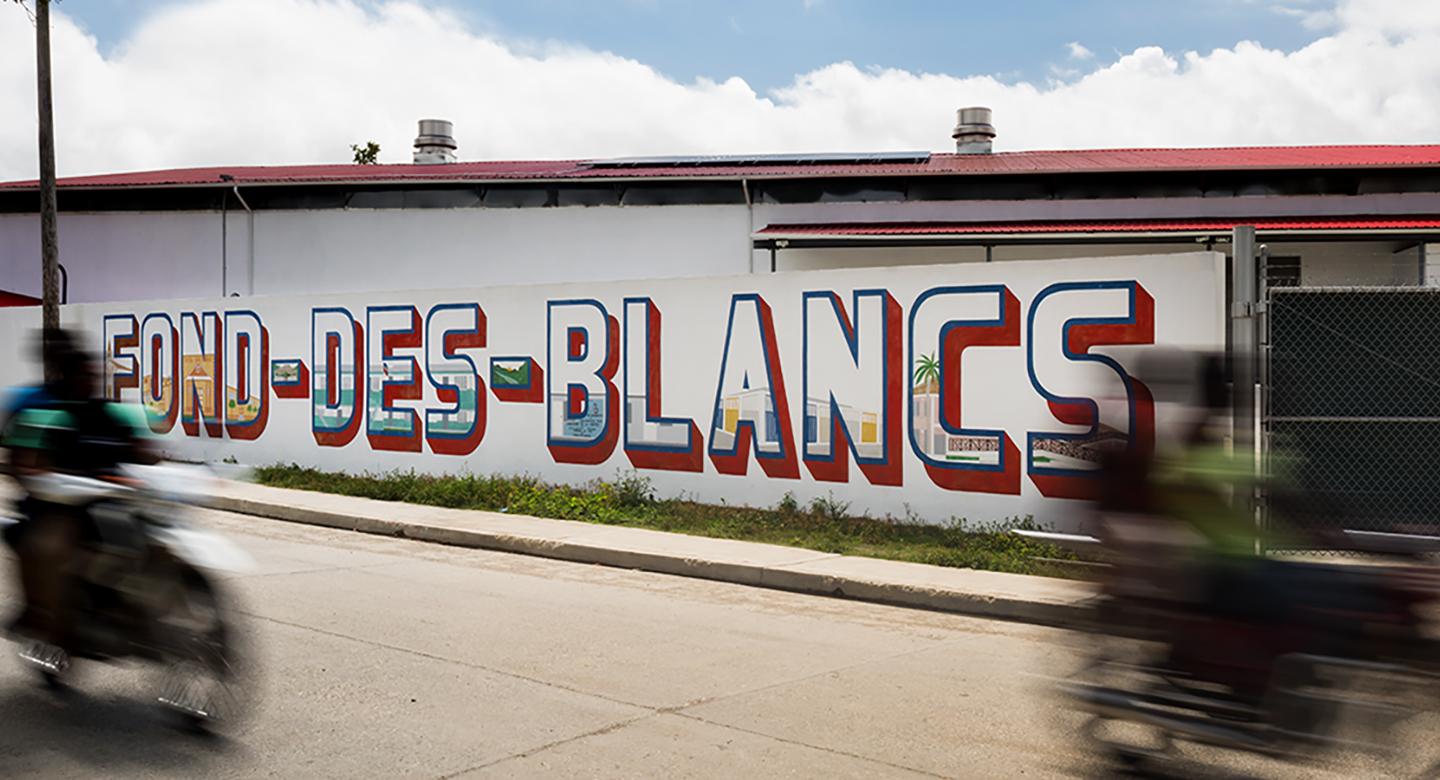
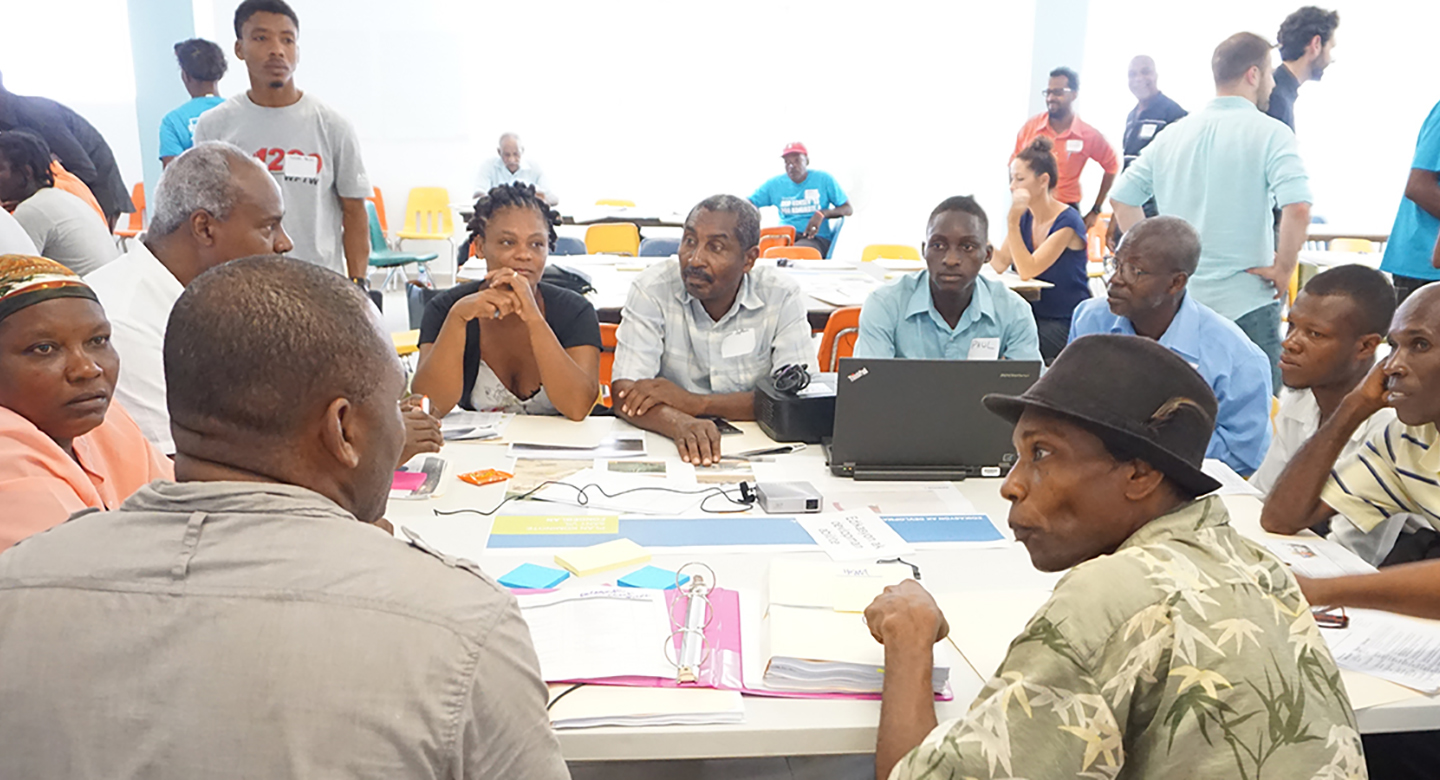
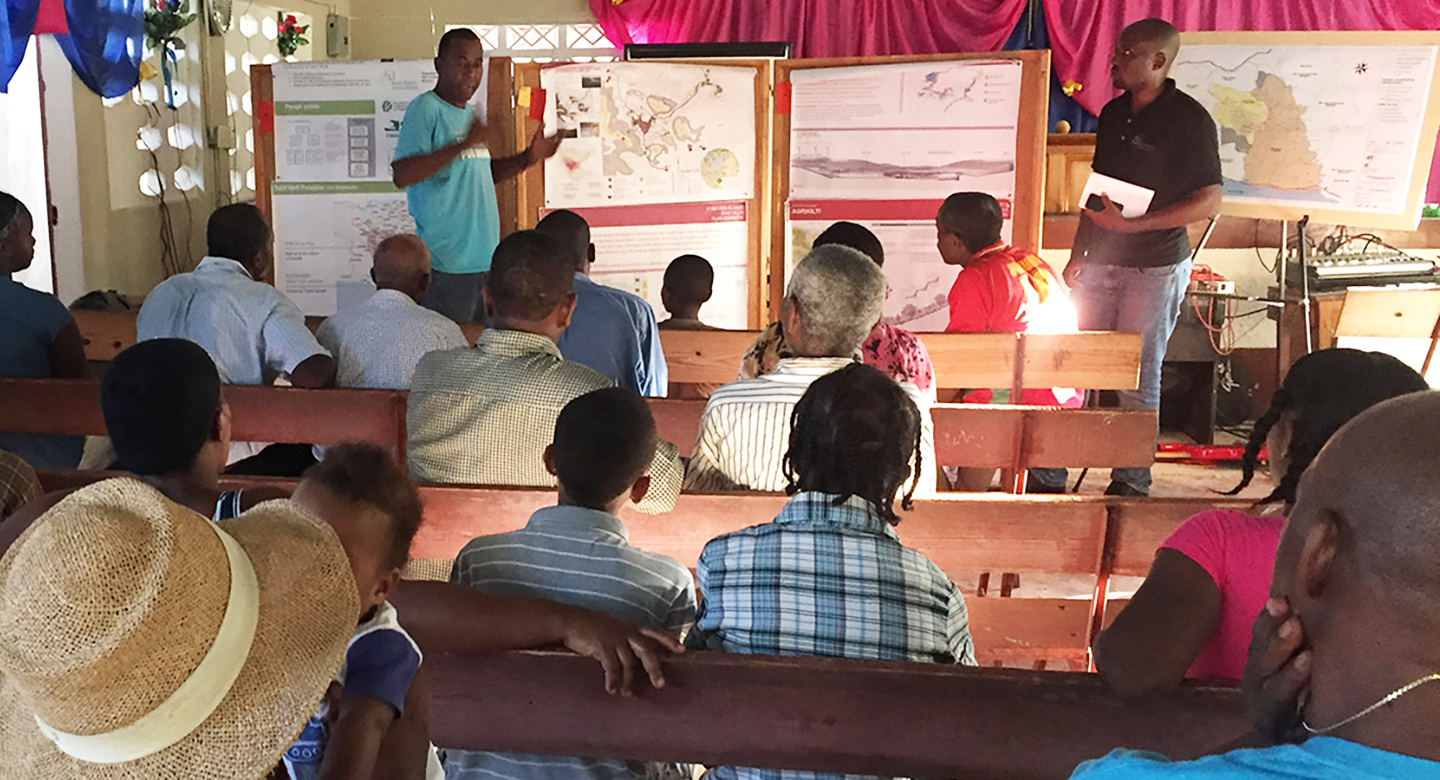
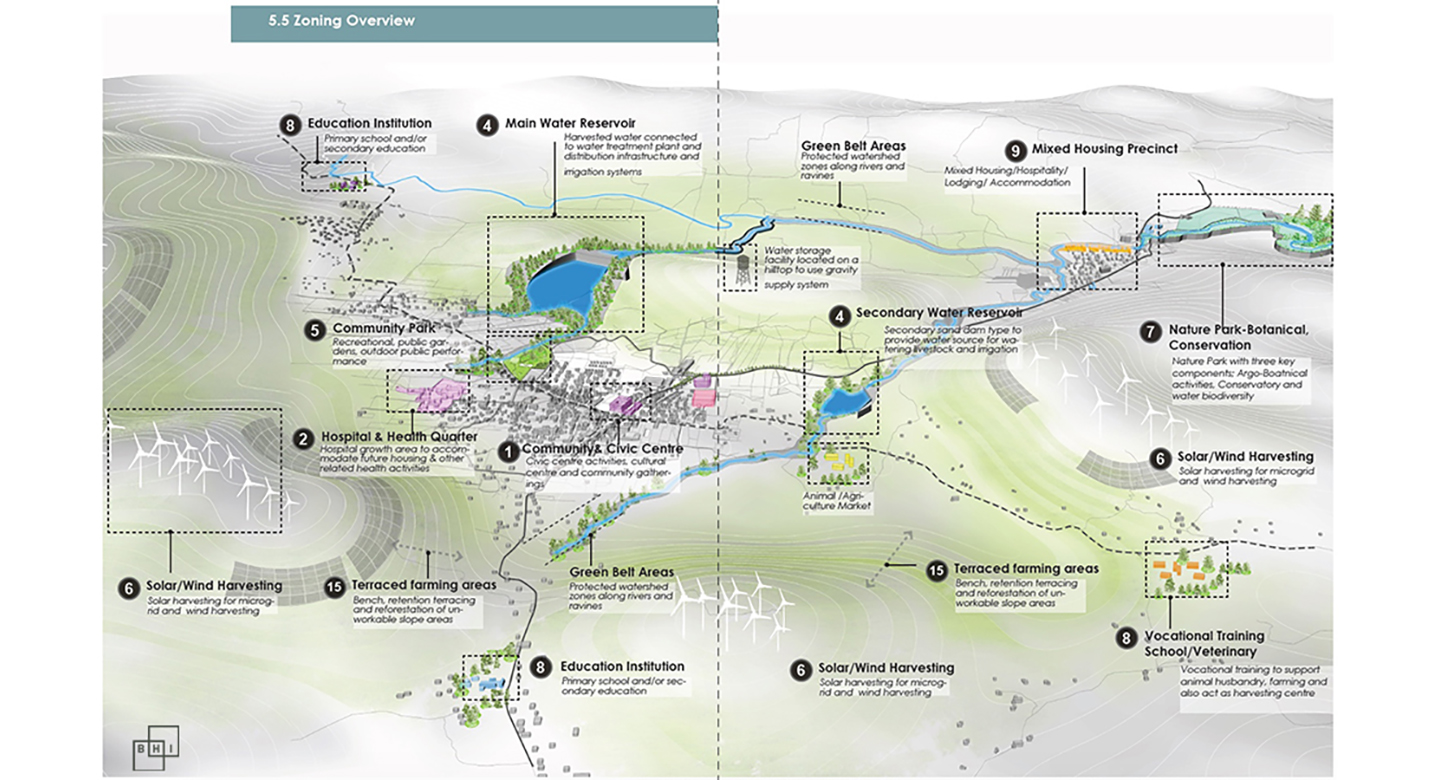
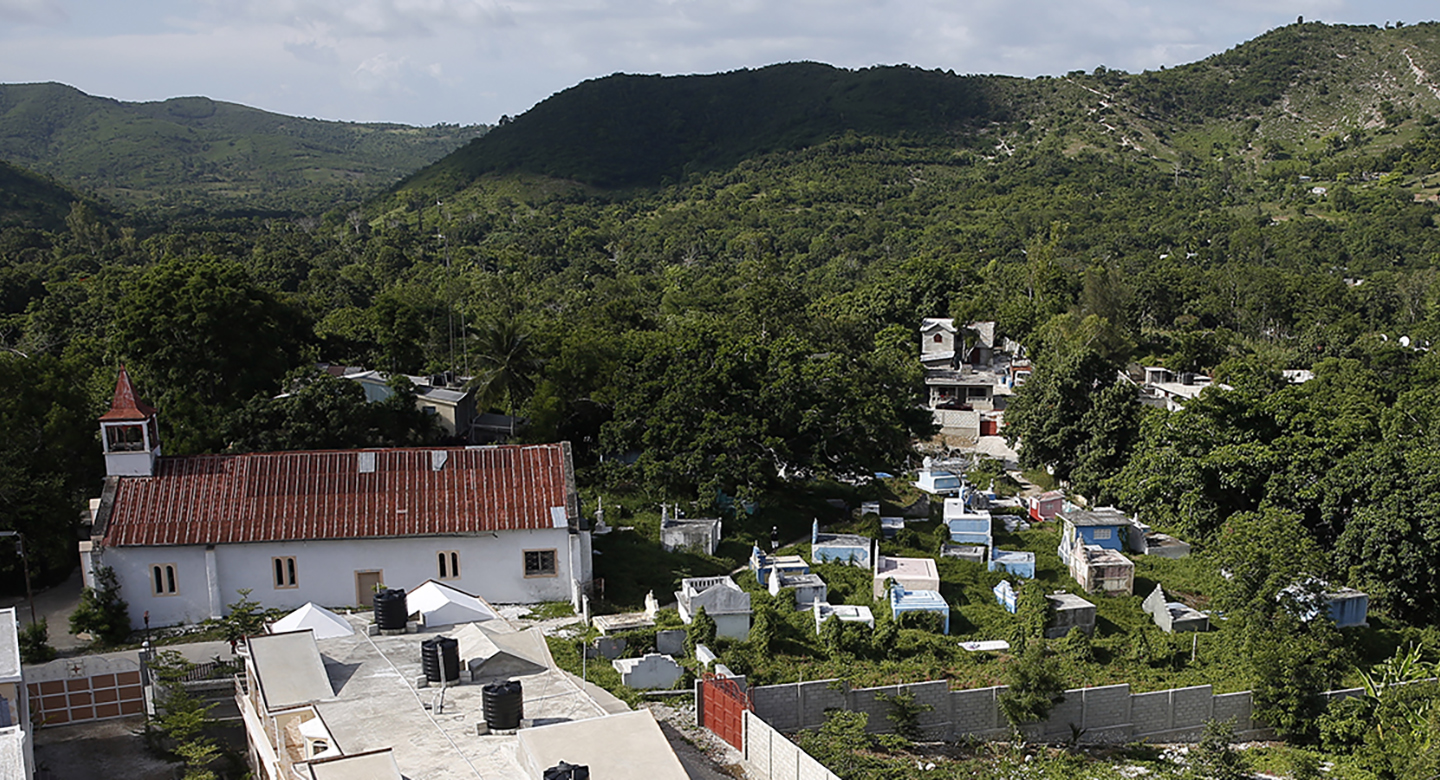
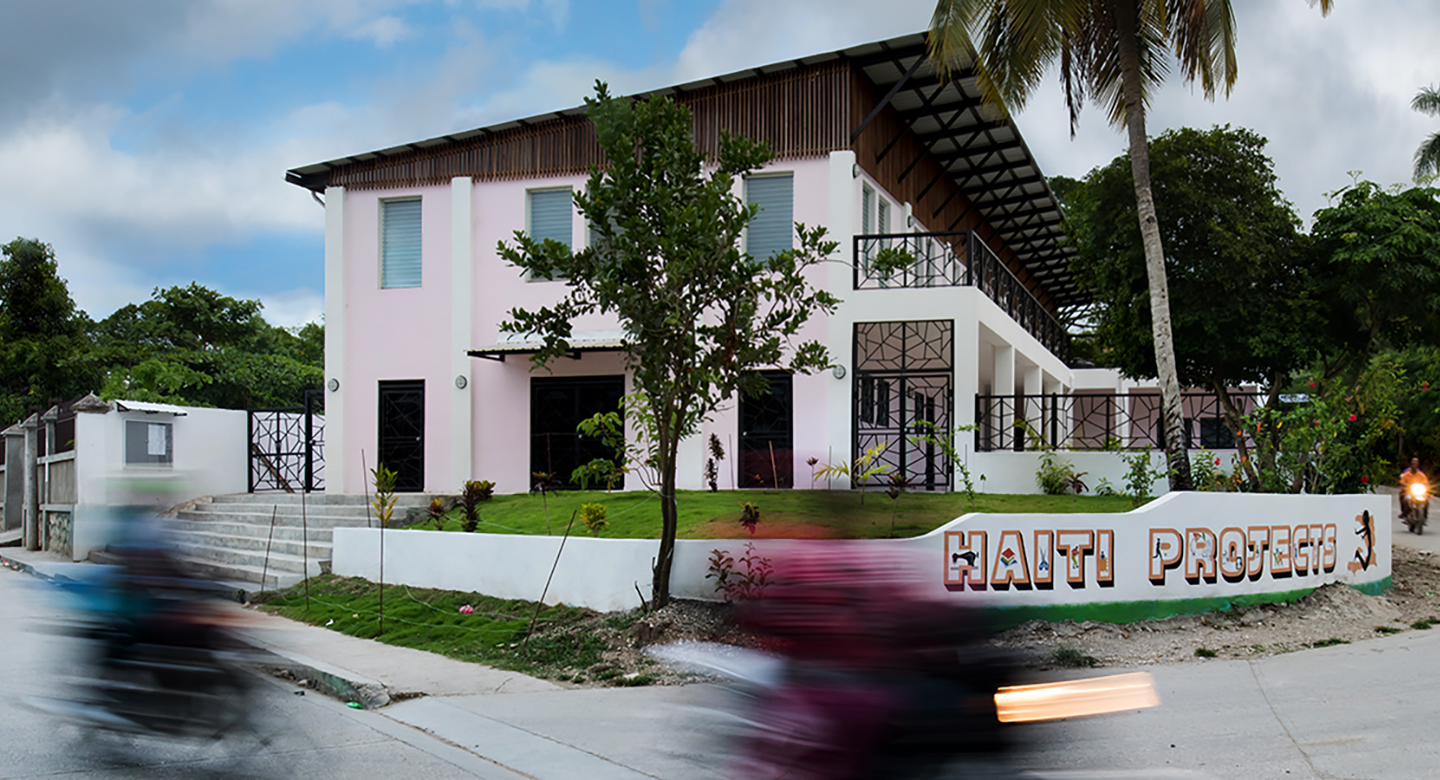
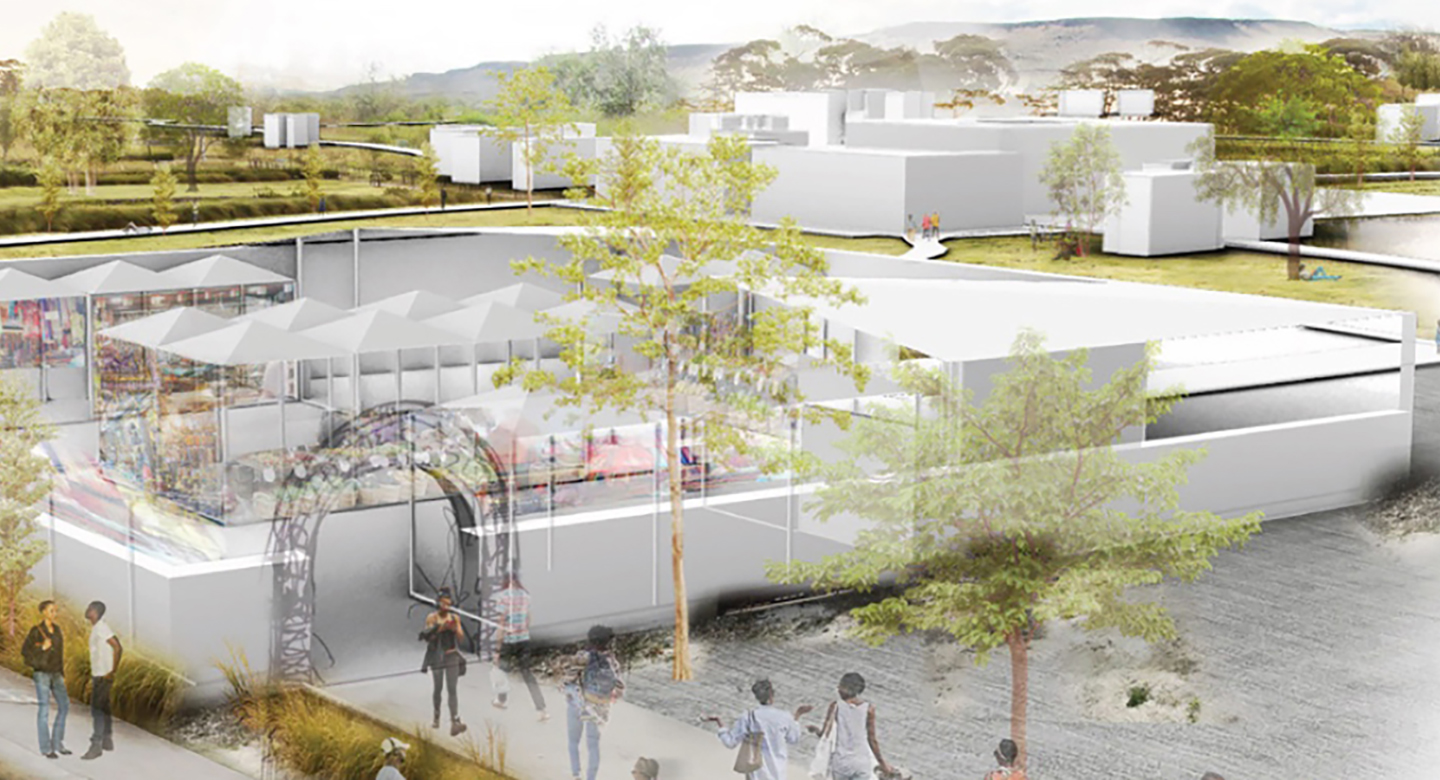
The Fond des Blancs (FdB) Town Center is a hotbed of activity. People from neighboring communities travel by foot, donkey, motorcycle and car to visit the market, bank, library, hospital, churches, bars and restaurants. In recent years, uncontrolled growth has led to a congested market and rapid, centralized construction. These challenges have laid the groundwork for a powerful opportunity to plan and grow the Fond des Blancs Town Center to best serve its residents. The W.K. Kellogg (WKKF) foundation funded a community masterplan to provide a formal planning structure to guide development, and capture Fond-des-Blancs’ future aspirations. The FdB Town Centre Community Plan sets forth a development strategy for Fonds des Blancs that reflects the goals and aspirations of the community. The Plan serves as a guide for future growth and recommends catalytic projects and investments. The FdB Town Centre Community Plan is the culmination of a two and half year participatory planning process, involving community stakeholders. The multi-phase process involved: engaging community liaisons, stakeholder interviews, household surveys, public engagement workshops, scenario planning workshops, and expert and community review. The project challenged us to rethink the role of the urban planner/architect in the creation of the community plan. We assumed a ‘collaborator’ and ‘facilitator’ role to enable local negotiations amongst community stakeholders and their sought shared future aspirations. In the FdB Community master planning process, we did not define the future vision based on some utopian ideals but rather the vision was community-led, based on the pragmatic real issues that the community wants to solve. Through the participatory planning process, the community reached an agreement on a shared vision: “Creating a beautiful and sustainable Fonds des Blancs” in key social and economic sectors critical to the realization of a future town center. The community identified three overarching themes, centered on economic activities and means of livelihood that will underpin the future vision of the Fond-des-Blancs Town Centre. These are: Agriculture, Education, and Transportation.
Town of Fond des Blancs
W.K. Kellogg Foundation
Fond des Blancs, Haiti
August 2018
Community planning, masterplanning, urban development
planning
Project Completed at Build Health International
W.K. Kellogg Foundation, Saint Boniface Hospital, ADF, PDCA, CCGIS, Re:ground LLC, Youth Build Boston, James Kostaras, Peter Wiederspahn, Ferauld Maingnan, Pastor Jean Thomas, Michellete Mascary, Briel Leveille
Lack of existing desktop information meant we needed to work with local leaders to document the shared history, heritage, culture, politics, and environmental profile of FdB. Working with local agronomists during the diagnostic workshops provided relatively accurate accounts of past storm flooding areas, landslide areas, and the mapping and validation of anecdotal rainfall data.
Post the 2016 Hurricane Mathew, we worked with a mapping consultant, CCGIS, to develop community maps for Fond des Blancs. The maps located Village centers within the FDB Commune and matched them with the key social infrastructure. This data was critical in identifying communities with the most dire needs for access to water, and other amenities due to the hurricane. Using Lidar, a drone mapping technology, CCGIS was able to provide valuable data that would not have otherwise been possible to collect. This information was used to produce data maps for the masterplan.
Limited resources of both human, and capital, make the analog deployment and analysis of household surveys a prohibitive process. The availability of new open-source tools allows researchers and planners to have technology assist during the data gathering and engagement of their work. The open-source program, KOBO toolbox, developed by Harvard’s Humanitarian Initiative, was used by our local partner, Association pour le Developpement de Fond-des-Blancs (ADF), for the household surveys. Through this process, we were able to collect a census of information from a cross-section of the community including often underrepresented members.
We trained local organization ADF in community assessment and surveying techniques (through CCGIS). We also aimed to empower local stakeholders who were part of the CPAC, and worked throughout the planning process on some basic understanding and appreciation of the planning process. By adopting a participative approach, the planning process of the FdB Community Masterplan, also enabled the resurrection of the diaspora network community, COFEX based in the Boston area, with the purpose of actively participating in potential project implementation.
GOAL 4: Quality Education
GOAL 5: Gender Equality
GOAL 8: Decent Work and Economic Growth
GOAL 9: Industry, Innovation and Infrastructure
GOAL 10: Reduced Inequality
GOAL 12: Responsible Consumption and Production
